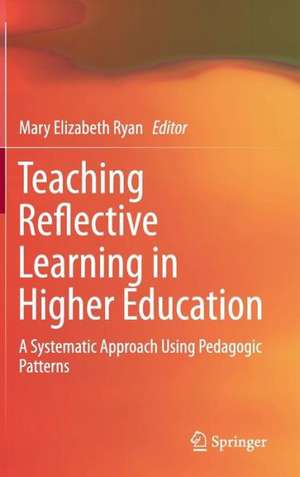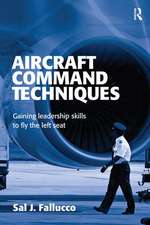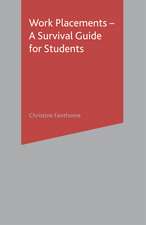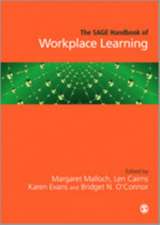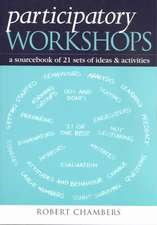Teaching Reflective Learning in Higher Education: A Systematic Approach Using Pedagogic Patterns
Editat de Mary Elizabeth Ryanen Limba Engleză Hardback – 18 noi 2014
| Toate formatele și edițiile | Preț | Express |
|---|---|---|
| Paperback (1) | 724.32 lei 6-8 săpt. | |
| Springer International Publishing – 24 sep 2016 | 724.32 lei 6-8 săpt. | |
| Hardback (1) | 730.35 lei 6-8 săpt. | |
| Springer International Publishing – 18 noi 2014 | 730.35 lei 6-8 săpt. |
Preț: 730.35 lei
Preț vechi: 890.66 lei
-18% Nou
Puncte Express: 1096
Preț estimativ în valută:
139.75€ • 146.21$ • 116.09£
139.75€ • 146.21$ • 116.09£
Carte tipărită la comandă
Livrare economică 03-17 aprilie
Preluare comenzi: 021 569.72.76
Specificații
ISBN-13: 9783319092706
ISBN-10: 3319092707
Pagini: 200
Ilustrații: X, 234 p. 20 illus. in color.
Dimensiuni: 155 x 235 x 20 mm
Greutate: 0.52 kg
Ediția:2015
Editura: Springer International Publishing
Colecția Springer
Locul publicării:Cham, Switzerland
ISBN-10: 3319092707
Pagini: 200
Ilustrații: X, 234 p. 20 illus. in color.
Dimensiuni: 155 x 235 x 20 mm
Greutate: 0.52 kg
Ediția:2015
Editura: Springer International Publishing
Colecția Springer
Locul publicării:Cham, Switzerland
Public țintă
ResearchCuprins
PART I Conceptual Underpinnings of Reflective Learning.- 1. Introduction: Reflective and reflexive approaches in higher education: A warrant for lifelong learning? Mary Ryan.- 2. A model for reflection in the pedagogic field of higher education, Mary Ryan and Michael Ryan.- PART II Reflective Learning Across Disciplines.- 3. Refining a Teaching Pattern: Reflection Around Artefacts, Dean Brough and Michael Ryan.- 4. The Dancer as Reflective Practitioner, Evan Jones and Mary Ryan.- 5. Reflective Practice in Music: A Collaborative Professional Approach, Georgina Barton.- 6. Using the TARL model in Psychology: Supporting first and final year students to compose reflections, Erin O’Connor, Patricia Obst, Michele Furlong and Julie Hansen.- 7. Teaching and assessing reflective writing in a large undergraduate core substantive law unit, Tina Cockburn and Mary Ryan.- 8. Teaching Peer Review Reflective Processes in Accounting, Sue Taylor and Mary Ryan.- 9. The use of multimodal technologies to enhance reflective writing in teacher education, Lenore Adie and Donna Tangen.- 10. How does the use of a reflective journal enhance students’ critical thinking about complexity? Jenny Kaighin.- 11. Teaching Reflection for Service-learning, Jimi Bursaw, Megan Kimber, Louise Mercer and Suzanne Carrington.- PART III Pedagogical Integration of Reflective Learning.- 12. An ePortfolio approach: Supporting critical reflection for pedagogic innovation, Lynn McAllister.- 13. The SocialLife of Reflection: Notes Toward an ePortfolio-Based Model of Reflection, Kathleen Blake Yancey.- 14. Leadership enabling effective pedagogic change in Higher Education, Nan Bahr and Leanne Crosswell.- 15. Sustainable Pedagogical Change for Embedding Reflective Learning Across Higher Education Programs, Michael Ryan and Mary Ryan.
Textul de pe ultima copertă
This book is about understanding the nature and application of reflection in higher education. It provides a theoretical model to guide the implementation of reflective learning and reflective practice across multiple disciplines and international contexts in higher education. The book presents research into the ways in which reflection is both considered and implemented in different ways across different professional disciplines, while maintaining a common purpose to transform and improve learning and/or practice.
Readers will find this book innovative and new in three key ways. First, in its holistic theorisation of reflection within the pedagogic field of higher education; Secondly, in conceptualising reflection in different modes to achieve specific purposes in different disciplines; and finally, in providing conceptual guidance for embedding reflective learning and reflective practice in a systematic way across whole programmes, faculties or institutions in higher education. The book considers important contextual factors that influence the teaching of forms and methods of reflection. It provides a functional analysis of multiple modes of reflection, including written, oral, visual, auditory, and embodied forms. Empirical chapters analyse the application of these modes across disciplines and at different stages of a programme. The theoretical model accounts for students’ stage of development in the disciplinary field, along with progressive and cyclical levels of higher order thinking, and learning and professional practice that are expected within different disciplines and professional fields.
Readers will find this book innovative and new in three key ways. First, in its holistic theorisation of reflection within the pedagogic field of higher education; Secondly, in conceptualising reflection in different modes to achieve specific purposes in different disciplines; and finally, in providing conceptual guidance for embedding reflective learning and reflective practice in a systematic way across whole programmes, faculties or institutions in higher education. The book considers important contextual factors that influence the teaching of forms and methods of reflection. It provides a functional analysis of multiple modes of reflection, including written, oral, visual, auditory, and embodied forms. Empirical chapters analyse the application of these modes across disciplines and at different stages of a programme. The theoretical model accounts for students’ stage of development in the disciplinary field, along with progressive and cyclical levels of higher order thinking, and learning and professional practice that are expected within different disciplines and professional fields.
Caracteristici
A conceptual model for the application of reflection across disciplines in a variety of contexts Empirical examples of different modes and pedagogic patterns for reflection Guidance and support for embedding systemic pedagogical and curriculum change Includes supplementary material: sn.pub/extras
